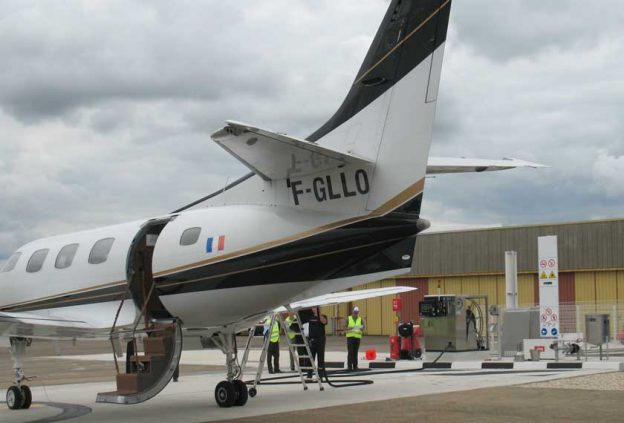Aviation/Marina Station

Aviation/Marina solutions require a great deal of expertise in regulation and field constraints.
An aviation petrol station must comply with international regulations, with specific storage, filtration systems dedicated to aviation, ….
Aviation is constrained by regulations, marinas are more constrained by the environment and differences in levels depending on the tides (pressure problems, pollution risks).
Canopy 1
This metal structure is located above the fuel dispenser track, and protects users and petrol station against weather conditions.
In some configurations, the roof can be replaced by photovoltaic panels to allow the station to be partially autonomous according to the weather of the day.
Aviation and marina storage tank 2
The tank is often made of stainless steel for the first shell, or with a specific coating affixed to the steel, in order to guarantee a top quality fuel.
The tank is tilted to create a low point and thus recover residues and water can sometimes be in the tanks. Indeed, water does not mix well in aviation: there is always a risk of freezing in altitude.
Electronic gauging 3
Electronic gauging is often used to check the presence of water in the tank, or to avoid stockouts that can damage the immersion pump.
Fuel dispenser 4
There are different fuel dispensers ranging from 3 m³/h to 12 m³/h. Optionally, we can offer a military filtration to adapt to the requirements of armies.
Our devices are sometimes equipped with reel with coupling or zvaf 32 nozzles specially adapted for aviation.
Predetermination keyboards are provided to put the right amount in each tank of the aircraft.
For marinas, the flow can go up to 20 m³/h, to ensure the supply of yachts or fishing boats. In these cases, we prefer stainless steel material to guarantee the duration of the fuel dispensers.
Piping 5
The pipes are made in stainless steel to preserve the quality of products for aviation. PSWA offers this service.
